Hannah Braime's Blog, page 4
October 7, 2018
These Four Steps Can Help You Increase Your Happiness
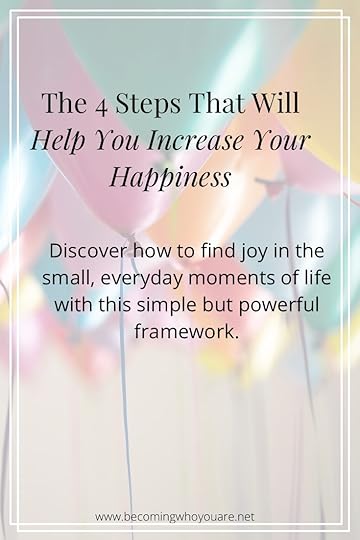
It’s three weeks before we move and I’m restless. I spend time I should be working or doing other important tasks distracted, thinking about how great our new place will be, how it’s the start of a new adventure for us, itching to make it our own, and wishing that 21-day period could just hurry and be over already because I. Am. Ready.
At that moment, I am feeling so impatient that if I could speed up time, I would skip the intervening three weeks of my life to get to the part where the magic happens. As the title of one of my daughter’s books says, ‘Waiting Is Not Easy!’ But, while in this state of frustrated impatience, I’m overlooking the fact the thing that is driving me to distraction right now is actually an important component of enjoying the experience: anticipation.
In her book, The Happiness Project, Gretchen Rubin outlines what she calls “The Four Stages of Happiness.” As Elisabeth Kubler-Ross described the five stages of grief (denial, anger, bargaining, depression, and acceptance), Gretchen suggests there are similar stages for experiencing and processing positive events in our lives too. According to her research, to maximise our happiness from an event or experience, we need to:
Anticipate it
Savour it as it unfolds
Express happiness
Recall a happy memory
This series of steps struck a chord with me. When I look back on times I’ve rushed to get to the good part, hurried a resolution (however positive), or been impatient for the good experience to happen already, it’s left me feeling flat afterwards—like somehow even though I’ve experienced the good, I’ve also missed something along the way.
My impatience during the anticipation stage, my desire for the waiting to be over already, risks squashing any joy I might also experience from this. Then, savouring the experience as it unfolds… let’s just say this too is also a work in progress. I love having all my ducks in a row, knowing what I’m doing, where I’m going, and how I’m getting from A to B (shout out to my fellow Myers-Briggs J types!). Not knowing or having to wait on someone or something else to figure these things out is less likely to leave me feeling wild and free and more likely to leave me feeling grumpy and frustrated.
But as I wrote about here, sometimes the best things come out of a change in plans, uncertainty, disruption, and situations with multiple possible outcomes. This is where I think the “as it unfolds” part of stage two is important. While I’m savouring the moment (…but only as long as it goes to plan and matches the vision in my head) I’m missing out on the opportunities for different kinds of joy, unanticipated happiness, and being present in the moment, rather than getting wrapped up in my thoughts about how things should be different.
I’ve found stages three and four feel more natural. I love sharing joyful experiences with the people who are closest to me, and part of the joy I get from them is talking about how joyful they are! As a culture, we have this tendency to put a lid on our joy and to view unreserved expressions of enthusiasm as uncool or somehow untamed. Why?! I find joyful experiences that much richer when I’m around people who are expressing their enjoyment of and enthusiastic about the experience, and I try to be that person around others too. I’ve also found tools like gratitude journaling to be helpful for becoming more mindful and expressive of the joyful aspects of my life.
The recall is also something that brings me happiness. Even small rituals like sitting down with my husband in the evening to trade videos and photos we’ve each taken of my daughter during the day increase my overall joy quota enormously. My monthly and yearly reviews are a precious opportunity to review the good things about last 30+ days. I also collect snippets of video most days to add to the 1 Second Everyday app, which allows you to create video montages of weeks, months, or years of memories.
Everyone experiences happiness in different ways and I’m aware not everyone will fit with or relate to these stages or this kind of framework. But I share because I’ve found it helpful to think about these four stages and how I’m experiencing them in my life. Paying more attention to this has increased the level of joy and satisfaction I experience on a daily basis.
The seeds for the most profound experiences of happiness don’t come from big life events. They are there, being planted in the small moments, routines, and rituals of my life each day.
I hope it’s helpful for you too!
How do you experience each of these four stages? Do you have any suggestions to share that have helped you enjoy and experience each stage more deeply? Leave a comment and share your thoughts!
Photo by Adi Goldstein on Unsplash
The post These Four Steps Can Help You Increase Your Happiness appeared first on Becoming Who You Are.









September 23, 2018
15 Journaling Prompts That Will Help You Level Up Your Work Life
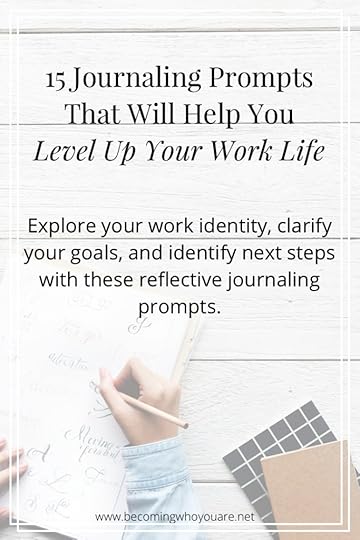
Even though I haven’t set foot in a school for a long time now, September still feels like the start of something new. There’s something about the old association with a new school year, yes, but also the evenings drawing in, the chill in the air that signals autumn is on its way, and the knowledge we’re on the home straight towards the end of the year.
With that in mind, this feels like a good time to share a post with journaling prompts about your career. I think paying special attention to this—and any other—area of your life through journaling is super helpful even if you feel happy and settled with the way things are (hooray for you!). And, if you don’t, I hope writing about it will help give you some clarity and shed light on the very next step you can take to improve your situation.
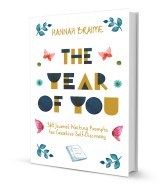 All the prompts below are taken from my book The Year of You: 365 Journal Writing Prompts for Creative Self-Discovery so if you enjoy these, you can find many more prompts in the book.
All the prompts below are taken from my book The Year of You: 365 Journal Writing Prompts for Creative Self-Discovery so if you enjoy these, you can find many more prompts in the book.
I hope you find it useful and interesting to think about these prompts!
Further reading: 15 journaling prompts to explore your spiritual side, journaling prompts to improve your relationship with money, journaling prompts for self-discovery, journaling prompts to improve your relationships
The post 15 Journaling Prompts That Will Help You Level Up Your Work Life appeared first on Becoming Who You Are.









September 9, 2018
A List of Free Workbooks and Resources Available in the Becoming Who You Are Library
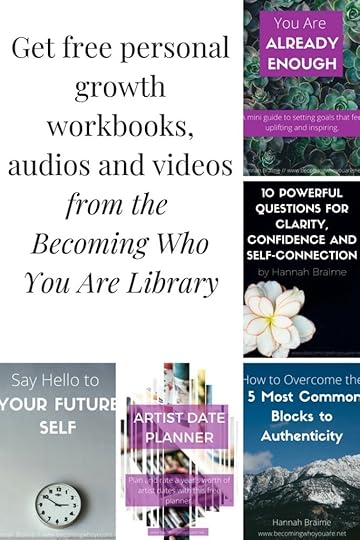
The Becoming Who You Are Library is packed with free workbooks and resources you can use to learn more about yourself and inspire personal growth. I’ve been adding to the library over the last few years and there are now almost 20 workbooks, audios, and books summaries in there for your perusal!
If you’ve been reading Becoming Who You Are for a while, you’ll have seen some of these resources mentioned before, but some might have also passed you by, so I hope it’s helpful to see them all in one place and learn more about each one. If you’re not yet a member of the library, you can get access to all the below for free by registering here (you’ll also get email updates with news and new blog posts from yours truly and are free to unsubscribe at any time.)
WorkbooksThe Wheel of Life & Say Hello to Your Future Self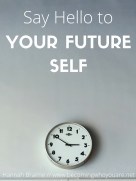 These workbooks are different takes on the same exercise. One comes with a chart you can print out and the other has a list of questions you can use to explore your ideal life in more depth. Both will help you get clarity on your level of satisfaction with the most important areas of life and identify how you can improve them.
These workbooks are different takes on the same exercise. One comes with a chart you can print out and the other has a list of questions you can use to explore your ideal life in more depth. Both will help you get clarity on your level of satisfaction with the most important areas of life and identify how you can improve them.
Identify the ingredients that make life work and nurture your emotional, physical and mental wellbeing with this handy worksheet. Click the link above to listen to a podcast that guides you through making your own list.
A Year of Deep Writing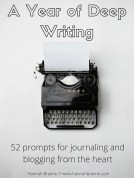 In this workbook, you’ll find 52 writing prompts you can use for personal journaling or to as inspiration for blog posts. Never get stuck for what to write again!
In this workbook, you’ll find 52 writing prompts you can use for personal journaling or to as inspiration for blog posts. Never get stuck for what to write again!
Explore some of the most common obstacles to living authentically, learn more about them, and identify ways you can move through them to live in a way that is more true to yourself.
You Are Already Enough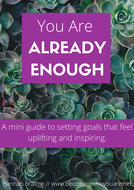 A common goal-setting pitfall is to choose goals from a place of not feeling like we’re enough as we already are. This workbook is all about changing that and setting goals from a place of good enough that feel uplifting and enriching.
A common goal-setting pitfall is to choose goals from a place of not feeling like we’re enough as we already are. This workbook is all about changing that and setting goals from a place of good enough that feel uplifting and enriching.
Kickstart your introspection and insight into how the 3 Cs show up in your life (and how you can cultivate them further).
The 5 Principles of Living Purposefully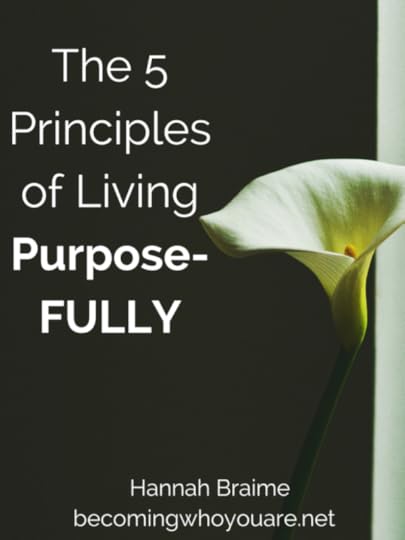 If you’ve ever felt stuck on or questioned your purpose in life, this workbook is a crash course into some of the most important principles of creating and kicking a meaningful life.
If you’ve ever felt stuck on or questioned your purpose in life, this workbook is a crash course into some of the most important principles of creating and kicking a meaningful life.
Being conscious of your core values —the qualities that, for you, are most important for you and others to embody—helps you live by your true moral compass and make better decisions that are based on who you are and what’s important to you. This workbook guides you through the process of identifying and embodying your values.
Artist Date Planner Plan a year’s worth of artist dates and get ready to fill your creative well with this workbook! Want some ideas to get started? Read this post for 52 easy and inspiring suggestions to choose from.
Plan a year’s worth of artist dates and get ready to fill your creative well with this workbook! Want some ideas to get started? Read this post for 52 easy and inspiring suggestions to choose from.
You can use both these audios as background listening when you need a dose of self-kindness or incorporate them into your formal meditation practice.
Book SummariesEach summary contains 10 lessons from the book in an easy-to-digest format. You’ll find the following summaries in the library:
The Happiness Advantage by Shawn AchorGuilt, Shame, and Anxiety: Understanding and Overcoming Negative Emotions by Peter BregginSucceed: How We Can Reach Our Goals by Heidi Grant HalvorsonThe Life-Changing Magic of Tidying Up by Marie KondoThe 6 Pillars of Self-Esteem by Nathaniel BrandenThe 5 Love Languages by Gary ChapmanRising Strong by Brené BrownVideo ClassesHow to Start a Regular Journaling PracticeIn this video class, you’ll find 10 big ideas that will get you started with an illuminating and insightful regular journaling practice. More videos coming soon!
Special Offers & Discount CodesAs a member of the Library, you also get subscriber-only coupons to save 25% on my two Udemy courses: Write Every Day and How to Start Journaling for Personal Growth.
Remember: if you’re not already a member, you can get access to all of these resources by registering for the Becoming Who You Are Library. It’s free to join and you can unsubscribe at any time :)
Are any more topics or resources you’d like to see covered in the library? I’d love to hear your suggestions so let me know via email or by leaving a comment below.
The post A List of Free Workbooks and Resources Available in the Becoming Who You Are Library appeared first on Becoming Who You Are.









August 26, 2018
In Celebration of Things That Don’t Work Out (& the child of the dream)
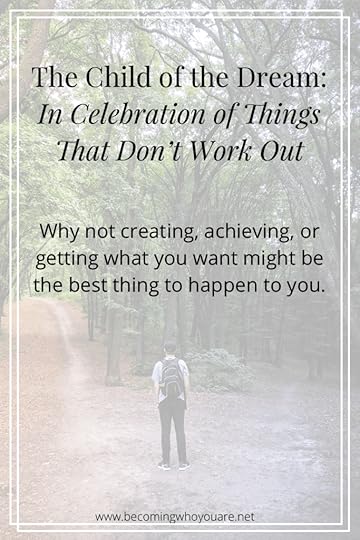
As I sit here, trying to think of times when things haven’t worked out as I’d hoped or planned in my life, I’m finding it hard to choose from the many, many instances where that’s been the case. The jobs I really wanted but didn’t get, the relationships I wanted to work out that didn’t, the achievements I worked so hard for but didn’t reach, the goals I’ve had that I didn’t make happen, the places I fell in love with and tried to settle in but had to leave, the hopes and dreams I’ve had that didn’t become reality, the ways in which I’ve messed up, in which I’ve felt I’ve failed myself and other people. It paints a picture, right?!
And yet.
When I look back at things that didn’t work out, I see how much some of these things sucked at the time. Alongside that, I also see the child of the dream, and how that has shaped my life in unexpected, beautiful, and deeply profound ways. Without all of these mishaps, losses, failures, and bad decisions, I wouldn’t be where I am today. I might not be here writing to you, I might not have my small chosen family, whom I love more than anything, I might not have the friends I have, have seen the places I’ve seen, and had the experiences that have made me who I am today.
This is the beautiful thing about honouring dreams, setting goals, having ambitions, aspirations, and things we want to do, see, experience and become: even when those things don’t work out, we still get to meet the child of the dream.
The child of the dream is the thing(s) that emerges, happens, becomes apparent because of our attempts to pursue that dream—even if that dream doesn’t come to pass, we don’t meet our original goals, or in our minds fail miserably at what we were trying to do.
It’s that job opening you discover two months after getting turned down for what you thought was the position of your dreams. It’s meeting that person you wouldn’t have met if your previous relationship hadn’t ended in the way it did. It’s the friends, experience, learning and opportunities you gain through attempting that business or creative venture, even though it initially falls flat on its face. It’s the twists and turns and “growth opportunities” that feel like hell when you’re in the middle of them, but from which you emerge facing in a completely different direction, with a different perspective, and with a different path before you.
You don’t know what the child of the dream will be in advance and it won’t show itself unless you get out there, own your dream, and try in the first place. But more often than not, certainly for me, it’s the child of the dream rather than the dream itself that has profoundly shaped my life.
So next time you’re experiencing fear of failure (or very real and tangible failure!), fear of visibility, fear of taking a reasonable risk, struggling with the uncertainty that comes with making hard decisions, taking big leaps, and going against the grain, remember: out there, somewhere, is the child of the dream you have yet to meet and everything it could bring into your life.
Can you think of any times when you’ve encountered the child of the dream? Leave a comment and share your thoughts!
Photo by Vladislav Babienko on Unsplash
The post In Celebration of Things That Don’t Work Out (& the child of the dream) appeared first on Becoming Who You Are.









August 19, 2018
The “What you can, when you can” Approach
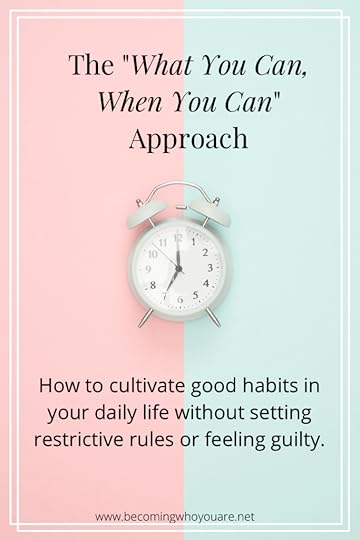
I know myself well enough to know setting all-or-nothing rules for myself doesn’t work, especially ones that stretch into infinity. I can do an 8-week workout programme, no problem, but committing to working out five times a week for the rest of my life? Not going to happen. I know I function much better when I limit the amount of sugar in my diet, but deciding I’m going to go sugar-free forever and ever and ever? Nope.
These kinds of rules don’t stick because:
a) Life changes. As the mother of an ever-changing, ever-growing toddler, I have no idea what my life will be like in 10 weeks’ time, let alone in 10 years time. Routines change, stuff comes up, unexpected things happen.
b) I will inevitably find ways to cheat. You know, the “Well… coconut sugar isn’t the same as processed sugar, so it doesn’t really count as eating sugar, right?!” kind of cheating (I know you know what I’m talking about… ;).
c) These rules create a resentment-rebellion-guilt cycle. Maybe you also know how this goes: you decide to curb your biscuit addiction by saying “OK, that’s it. No more biscuits!” But after a while, you start to feel resentful and constrained by the rules so sneak a biscuit in, then feel guilty, like you’ve failed, and oh-well-you-might-as-well-eat-the-whole-packet, etc. This cycle isn’t fun and it isn’t healthy. Sometimes it’s nice to have a lazy day, sometimes it’s nice to eat cake. Not all the time, but in moderation these things can be fun!
d) The things these rules cover are important to me, but other things are more important (right now, at least). Of course, sometimes we need hard and fast rules. If I were managing a health condition that was dependent on these rules, that would be different. But as things stand, working out five times a week and keeping my sugar intake to a hard 0 are not my number one priorities. Things that are include being as present and engaged as I can be as a parent and making time for creative pursuits that keep my spirits high and my soul happy. Sometimes this looks like also making time to exercise, but sometimes it looks like not working out and relying on all the coffee to keep me going because I got three hours of sleep the night before. Again, this isn’t where I want set up camp and stay for good but, in this particular season of my life, I choose what gets me through the day and choose not to feel bad about that.
The “What you can, when you can” approachThe approach I take instead of setting hard-and-fast rules is the “What you can, when you can” approach. I first heard about this years ago through the eponymous podcast and dabbled in the idea here and there. But since becoming a parent, it’s been one of the pillars of how I do most things in life.
The “What you can, when you can” approach involves (surprise!) doing what you can, when you can.
In any given moment, this might look like:
Taking the stairs instead of the lift.
Choosing a salad instead of a burger.
Choosing to write instead of surf Facebook.
Choosing a water over a soda.
Choosing to wait and think about it rather than buy today.
Walking instead of driving or taking public transport.
Choosing self-kindness over self-criticism.
None of these things are going to happen all the time. But the beauty of the WYCWYC approach is it focuses on what is happening right now, the moment-by-moment choices that make up the sum of our lives. Rather than setting unattainably high standards or unrealistically constrictive rules for ourselves, we’re focused on the choice right in front of us. We might make a different choice tomorrow, but what matters is the choice we are facing at this very second.
Sometimes this means choosing sugar. Sometimes it means choosing R&R time over exercise time. But often it doesn’t, because it’s also choosing to be more upfront with myself about what I’m doing—without any should-ing or heavy emotion attached—and be more mindful of my decisions.
WYCWYC in Life and WorkAs well as being more mindful of how I’m living and the decisions I’m making, the WYCWYC approach has helped me do more in a sustainable way. With little spare time these days, doing what I can, when I can and looking for the cracks of time between other things is how I blog most weeks, have written two books in the last year, read well and often, and make slow but steady progress on other creative projects I’m working on. It’s the approach I advocate in my course, Write Every Day (currently 50% off in the summer sale!), because it works.
So if you’re feeling stressed or pressured by what you think you should be doing or other expectations you’ve placed on yourself, my invitation to you is to try this approach.
If you were to do what you can, when you can, what would be different?
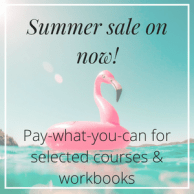 Friendly reminder: The Pay-What-You-Can Summer Sale is on now!
Friendly reminder: The Pay-What-You-Can Summer Sale is on now!
Pay what you can for any Becoming Who You Are course available through the website and save 50% on my Udemy courses on writing and journaling until Sunday 26th August.
Image: Photo by Icons8 team on Unsplash
The post The “What you can, when you can” Approach appeared first on Becoming Who You Are.









August 12, 2018
Summer Sale! Pay-What-You-Can (& 50% off Write Every Day)
If you’re craving some additional reflective time or creative fun over the next month or so, I have something for you…
In celebration of the summer (my favourite season of the year!), I am running a pay-what-you-can sale on all courses available through Becoming Who You Are, plus 50% off my Udemy courses (including my latest course, Write Every Day) from now until 11.59pm EST Sunday 26th August.
I believe personal growth is something that should be available to everyone who wants it, regardless of background or budget, so my intention with this kind of sale is to make these resources more accessible.
Here’s what’s included (you can register for as many as you want):
4 Weeks of Self-Knowledge (usually £19, currently Pay-What-You-Can)
Personal growth for busy people! This course will help you reconnect with yourself, discover what makes you tick, and cultivate a deeper understanding of why you do the things you do in less than 10 minutes a day.
Be Your Own Hero (usually £29, currently PWYC)
A self-paced course that explores how to deepen your courage, find your confidence, and become the creator of your own life.
The Entrepreneur’s Inner World (usually £59, currently PWYC)
A series of 24 interviews (video, MP3, and PDF transcripts) with coaches, creatives and entrepreneurs about the psychological and emotional tools you need to succeed in entrepreneurship. Discover big ideas and practical tools you to can use to grow yourself as well as your business.
Write Every Day: Start and Maintain a Writing Habit (usually £19.99, currently £9.99)
Create a regular writing habit that builds your confidence, creates solid, sustainable progress, and enables you to reach your biggest writing-related goals, as well as learning how to overcome procrastination, resistance, and other common challenges regular writers encounter. Please enter the code SUMMERSALE50 at the checkout if the discount isn’t already applied.
How to Start Journaling for Personal Growth (usually £29.99, currently £14.99)
Start and maintain a regular journaling practice with this multimedia course packed with tips and techniques that will inspire your reflective writing. Please enter the code SUMMERSALE at the checkout if the discount isn’t already applied.
A couple of simple-but-important housekeeping notes:
1. All items in this sale are digital only so you will receive everything you need to access the course via email.
2. This offer is not retroactive (i.e. doesn’t apply to previous purchases), sorry.
3. Purchases made during the sale are non-refundable. Thank you in advance for respecting this.
Any questions? Get in touch and I’ll get back to you ASAP.
Photo by Vicko Mozara on Unsplash
The post Summer Sale! Pay-What-You-Can (& 50% off Write Every Day) appeared first on Becoming Who You Are.









August 6, 2018
Not Sure How to “Follow Your Passion?” Try This Instead.
If you’ve spent any time in the personal growth sphere over the last few years, you’ve probably heard the rallying cry to follow your passion. While this advice comes from a well-meaning place, as a coach, I’ve also spoken to plenty of people who have heard this call, want to heed it, but are left with the big question: but what if I don’t know what my passion is?
For some people, picking something to be “your passion” can feel like a lot of pressure.
First of all, passion is a big word and, while you might have several things you’re interested in pursuing further, it might not ring true to say you’re passionate about them. You might also be aware that the thing you’re passionate about right now will probably change. You are constantly evolving (as we all are) and therefore so will your interests and priorities. Perhaps it doesn’t feel right to pick the one thing of things right now and close the door on everything else.
And what if you pursue your passion only to discover it’s not your passion after all? If you don’t have any plan B passions to fall back on, this pressure to find your “one thing” can leave some people afraid to even try. As uncomfortable as procrastination and resistance can feel, these patterns continue because they dangle the carrot of future hope: a time in which you follow your passion and everything is amazing as a result. In this situation, dealing with the discomfort of procrastination and resistance feels less risky than trying and discovering the thing you thought was your “one thing” isn’t after all and seeing that carrot of future hope disappear in a puff of smoke.
If these concerns resonate with you, I want to share a piece of brilliant advice from author Elizabeth Gilbert. She addresses this issue in her (also brilliant) book Big Magic:
“I am a big advocate for the pursuit of curiosity. You’ve maybe heard me talk about this before? We are constantly being told to pursue our passions in life, but there are times when passion is a TALL ORDER, and really hard to reach. In seasons of confusion, of loss, of boredom, of insecurity, of distraction, the idea of “passion” can feel completely inaccessible and impossible. In such times, you are lucky to be able to get your laundry done (that sometimes feels as high as you can aim) and when someone tells you to follow your passion, you want to give them the middle finger. (Go ahead and do it, by the way. But wait till their back is turned, out of civility.)
But curiosity, I have found, is always within reach.”
So if you’re not sure what it looks like to follow your passion?
Follow your curiosity instead.
Look for the things that speak to you in the everyday. Pursue your interests. Explore the threads that tie seemingly disparate interests and ideas together. Forget conventional wisdom and go where your attention draws you.
There is no “right” way to do your most important work and, beyond certain non-negotiable moral aspects, there isn’t one “right” way to do life either, so follow your curiosity, have the courage to forge your own path and enjoy seeing where it leads…
The post Not Sure How to “Follow Your Passion?” Try This Instead. appeared first on Becoming Who You Are.









July 30, 2018
8 Non-Writing Activities That Will Improve Your Writing
This post is taken from my new course, Write Every Day, which is available now! This course is all about starting a maintaining a sustainable long-term writing practice so you can build a body of work, reach your big writing goals, and share your gifts with the world. If you are working on a big project like starting a blog or writing a book, Write Every Day will give you tools and resources you can use to sit down, do the work, create meaningful momentum and sustainable progress.
Find out more and enroll here.
If you’ve been writing a while, you’ll know by now the best way to improve your writing is to write. With that being said, our writing, like all creative skills, is supported by the habits we cultivate in other areas of our lives too.
In one lesson of Write Every Day, I talk about the ebb and flow of energy and in this post I want to share a few activities that will support your creative energy, especially as you focus on growing your writing practice.
Working on a meaty writing project is often compared to other tests of endurance, like running a marathon, and the analogy fits here too. Marathon runners don’t just train by running. To support their running, they also need to incorporate stretching, cross-training, getting enough sleep, eating well, and more. None of those things involve pounding the pavement, but they are all necessary to reach the finish line on race day in peak physical condition.
In this post, I want to borrow this idea and share a few non-writing activities that will improve your writing:
1. Get moving
Movement takes us out of our minds and back into our physical body, giving our brains a (often much-needed) rest. As I mentioned in this post, even going for a short walk can help us generate new creative ideas. Besides this, getting up and moving keeps us energised, improves our mood and staves off writing-related ailments like back issues, shoulder cramp and carpal tunnel.
2. Clear your environment
I’m not the tidiest person at the best of times, but I’ve learned the hard way that a cluttered room means a cluttered mind. It’s hard to focus on the words in front of you if you’re distracted by papers on your desk, that pile of ‘miscellaneous’ on your shelf, or the bits and bobs you keep shuffling around the different areas of your floor.
Sarah Von Bargen wrote about the power of making your bed in her post about an “every damn day” list, and the same principle applies here. If you want to produce your best work, make time today to clear up your writing space and set up any systems you need to create to keep it that way.
3. Read
Second only to writing itself, reading is one of the best ways to improve your writing. Using a critical eye, you can learn straight from the people who do it best without having to step foot in a classroom or workshop. Reading widely—different authors from different periods in different genres—will not only help you figure out what makes for a compelling read, but it will help you improve your vocabulary and expose you to new ways of writing.
4. Listen to stories/podcasts
Like reading, listening to audiobooks and podcasts is a useful way to brush up on your writing skills. The next time you find yourself caught up in an episode of Serial or similar, ask: what is it that makes this story so compelling in the first place? How have the producers shaped this story to keep me engaged? Is there anything I’m looking for as a listener that’s missing here? Practice doing this exercise with different styles of stories and narratives and see what you learn.
5. Go on artist dates
Artist dates are a practice suggested by Julia Cameron, author of The Artist’s Way. They are a fabulous way to indulge your curiosity and nurture your creativity. I wrote more about them here and shared 52 ideas for artist dates here (along with a free planner).
6. Get enough sleep
The next two suggestions are about our physical health. Bear with me because although it might sound boring, it is so important. There is a reason sleep deprivation is used as torture, because it has a profoundly negative physical effect, reduces our cognitive functioning and turns us into emotional wrecks. None of these things will improve your writing. Not sure if you’re getting enough sleep each night? At the next available opportunity, don’t set your alarm and see how long you sleep for. Do this for a few nights in a row so you can gauge how much sleep you really need. Then, make that your new normal.
7. Eat right
Just as our sleep quality can make or break our wellbeing, so can the fuel we put in our bodies. I have a sweet tooth so I’m not immune to sugar cravings. But I also know that when I junk out, I feel like crap and my writing suffers too. Everything feels like more of a struggle, it stops being fun or flow-y and just feels like plain old hard work. Again, this isn’t particularly glamorous or exciting, but it’s an important foundation for doing our best work.
8. Practice observing
Go out and observe. People watch. Look at different situations and scenes. Practice describing them in your head, telling the story you imagine is unfolding. Even if you’re not a fiction writer, mentally describing what you see (or writing it down in your own words) is a useful exercise that will help develop your natural voice.
What non-writing activities do you use to improve your writing? Leave a comment and share your thoughts.
The post 8 Non-Writing Activities That Will Improve Your Writing appeared first on Becoming Who You Are.









July 23, 2018
15 Journaling Prompts to Inspire Travel and Adventure
In celebration of the glorious summer we are having here, I want to share 15 journaling prompts about travel and adventure. It’s a big, wide, world out there, and chances are we’ll only see a fraction of it! Travel and adventure are both important to me and bring me a lot of joy and fulfilment, so I enjoy using journaling to reflect on past experiences and explore future travel dreams.
Whatever your feelings about and relationship to travel and adventure, it’s fun and interesting to unpack this topic, and I hope you enjoy contemplating the questions below:
What does adventure mean to you?
How can you find adventure at home today?
What are your favourite travel memories?
Which do you believe is more important: the journey or the destination? Why?
What do you love about travelling?
What is the most adventurous thing you’ve done in your life so far?
What is one way you can add more adventure to your daily life this week?
Where have you been that feels like home away from home?
Write about one interesting or unexpected experience you’ve had because of travel or adventuring—at home or abroad.
What is your favourite method of transport?
What was the last trip you took? What was it like?
What have you gained through travel? And what have you lost along the way?
How do you plan an adventure: have everything ready down to the smallest detail? Show up and see what happens? Something in between?
What languages do you speak (or would like to speak)?
What will your next adventure be?
[image error]If you enjoyed these prompts and want more, I invite you to take a look at The Year of You. This is a guided journey through the most important areas of life, using a daily journaling prompt as a springboard to dig deep, learn more about yourself, and discover what makes you you. The book is available in ebook and paperback format and you can find out more about it here here.
Photo by Jonathan Forage on Unsplash
The post 15 Journaling Prompts to Inspire Travel and Adventure appeared first on Becoming Who You Are.









July 9, 2018
2018 Personal Growth Reading Challenge: Mid-Year Update!
[image error]A quick note before we get to this week’s post: If you love writing as much as you love reading, my new course on creating a daily writing habit is out now!
Write Every Day is all about using a regular writing habit to build your confidence as a writer, create a body of work, and keep working towards your biggest writing goals in a sustainable way.
Today (Monday 9th July) is the last day to save 50% on the course price using the code BWYAREADER50. Find out more and register here.
Happy writing!
At the beginning of this year, I shared the 2018 Personal Growth Reading Challenge. This is something I created to encourage myself to read more widely within the personal growth field and make sure I’m paying attention to all important aspects of life, not just the ones I usually enjoy reading about ;)
Now we’re halfway through the year, I want to share what I’ve been reading. Some of the books I’ve read so far have been on my “to read” list for ages, while some were pleasant surprises I only discovered over the past couple of months. Some of the books I loved (and I’ve shared my favourites below), while some of them I definitely did not (interestingly, some of my least favourites were the most popular books on this list!).
Overall, I’m super glad to be doing this challenge. It’s prompted me to read books I probably wouldn’t have read otherwise, books I’ve also learned a lot from in the process. I know many people ditch books they’re not particularly enjoying (and there is a lot of sense in this—life is short!), but especially with non-fiction, I still try to finish the books I don’t like or don’t agree with as I find it useful to think about why and where my own experiences, perspectives, and beliefs differ.
Reading Challenge Progress
Here is my list of challenge reads for 2018 so far. If you’re interested in checking out the books I mention, you can find links* to each book below the image. I would love to hear what you’ve been reading and enjoying so far this year too, so leave a comment at the bottom of this post and share your recommendations!
[image error]
How to Talk so Little Kids Will Listen and Listen so Little Kids Will Talk by Joanna Faber & Julie King
No Bad Kids: Toddler Discipline Without Shame by Janet Lansbury
The Whole30 by Melissa & Dallas Hartwig
You Are a Badass by Jen Sincero
The Secret Lives of Introverts: Inside Our Hidden Worlds by Jen Granneman
Embracing Your Inner Critic: Turning Self-Criticism Into a Creative Asset by Hal & Sidra Stone
Deep Work by Cal Newport
The Top Five Regrets of the Dying: A Life Transformed by Dearly Departing by Bronnie Ware
The Subtle Art of Not Giving a F***: A Counterintuitive Approach to Living a Good Life by Mark Manson
You’re Going to Survive: True stories about adversity, rejection, defeat, terrible bosses, online trolls, 1-star Yelp reviews, and other soul-crushing experiences—and how to get through it by Alexandra Franzen
The Year of Less: How I Stopped Shopping, Gave Away My Belongings, and Discovered Life Is Worth More Than Anything You Can Buy in a Store by Cait Flanders
The Things You Can See Only When You Slow Down: How to be Calm in a Busy World by Haemin Sunim
DIY MFA: Write with Focus, Read with Purpose, Build Your Community by Gabriela Pereira
The Courage to Be Disliked: How to Free Yourself, Change Your Life, and Achieve Real Happiness by Ichiro Kishimi & Fumitake Koga
Favourite reads so far
And here are the links to my favourites from the list above*:






Products from Amazon.com
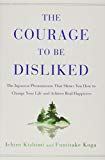
-40%
The Courage to Be Disliked: The Japanese Phenomenon That Shows You How to Change Your Life and Achieve Real Happiness
Price: $15.00
Was: $25.00
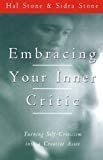
-21%
Embracing Your Inner Critic: Turning Self-Criticism into a Creative Asset
Price: $11.80
Was: $14.99
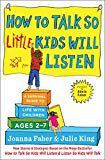
-45%
How to Talk so Little Kids Will Listen: A Survival Guide to Life with Children Ages 2-7
Price: $9.34
Was: $17.00
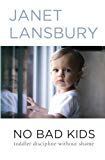
-10%
No Bad Kids: Toddler Discipline Without Shame
Price: $10.76
Was: $11.95
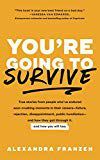
-33%
You're Going to Survive: True stories about adversity, rejection, defeat, terrible bosses, online trolls, 1-star Yelp reviews, and other soul-crushing experiences―and how to get through it
Price: $12.76
Was: $18.95
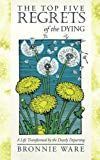
-51%
The Top Five Regrets of the Dying: A Life Transformed by the Dearly Departing
Price: $7.78
Was: $15.99
What have you been reading so far this year? I’d love to hear your favourite so leave a comment and share your recommendations.
*These are affiliate links, which means if you click through and purchase the book, I receive a small commission.
Photo by Anthony Tran on Unsplash
The post 2018 Personal Growth Reading Challenge: Mid-Year Update! appeared first on Becoming Who You Are.








 Related StoriesGoodbye, FebruaryGoodbye, JanuaryGoodbye, December (& 2017!)
Related StoriesGoodbye, FebruaryGoodbye, JanuaryGoodbye, December (& 2017!)



